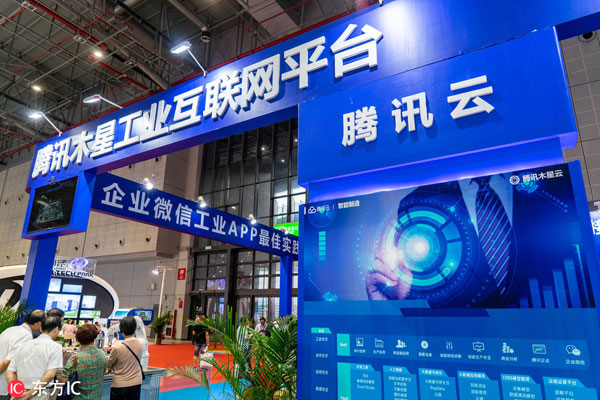Tencent, Ningbo to cooperate in digital economy

Technologies of Tencent Cloud and its industrial Internet of Things platform on display at the 2018 China International Industry Fair in Shanghai, Sept 20, 2018 [Photo/IC]
Ningbo's Jiangbei district inked an agreement with Tencent Cloud on Feb 26 to jointly develop the digital economy.
Tencent Cloud is a cloud computing service brand of Tencent, one of the largest internet companies in China, and has competitive advantages in the Internet of Things (IoT), cloud computing, big data and artificial intelligence (AI).
According to the agreement, Tencent Cloud will build a cloud service base, an experimental zone of the industrial IoT, and a high-tech lab in the district, and introduce 30 to 50 high-tech workers from Tencent to help the district cultivate more than 1,000 local high-tech talents and more than 100 startups in IoT, big data and AI areas.
The base is designed to enhance integration of the big data and industries and the zone will focus on providing IoT, big data and AI technologies and products to boost the smart manufacturing development of Ningbo. The lab will be devoted to the training of high-tech workers for driving the digital economy.
"The cooperation between the two sides marks a new starting point of Jiangbei's digital economic development," said an official from the Jiangbei authorities.
The district has solid foundations in the digital economy field. Over 2,000 local companies used cloud computing services last year, ranking first in the city by company type.
The district also introduced many key research institutes and bases for digital technology studies, such as the innovation center of the Institute of Computing Technology of Chinese Academy of Sciences, China's first academic institute for computing technology research.
For this year, the district aims to strengthen its digital economy by increasing the related industrial added value to 20 billion yuan ($2.99 billion) and the number of companies using cloud computing services to 3,000, and establishing three digital plants.



 Print
Print Mail
Mail
